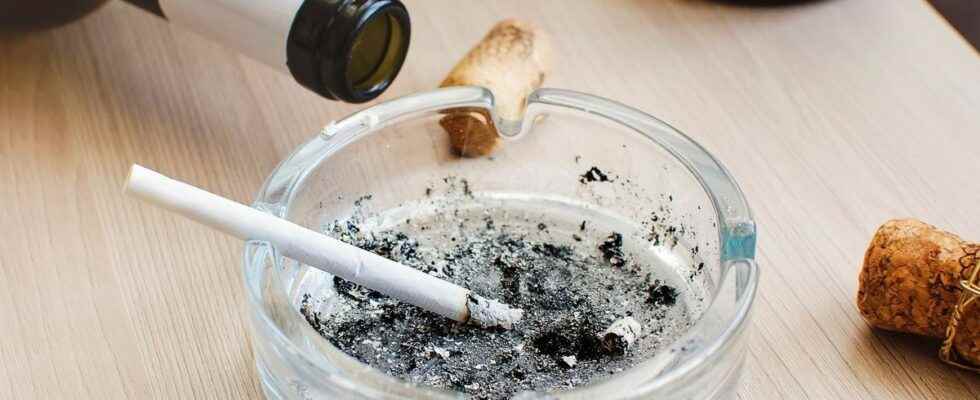Published on
Updated
Reading 2 mins.
The Dry January is a challenge to quit drinking alcohol for a month in a row, throughout the month of January. What are the effects of this withdrawal on health? The answers of Dr Philippe Batel, addictologist psychiatrist, head of the addiction service at the Charente public mental health establishment.
Dry January is a challenge to stop drinking all alcoholic beverages for a month. A challenge that has positive effects on health, as alcohol can be devastating, especially when consumed in high doses.
The first week: pride
“People who begin alcohol abstinence feel proud after a week” begins Dr. Batel. A very important positive feeling because it will be a source of motivation. “People who manage to quit drinking for a whole week gain self-confidence and develop this feeling of pride and feel less stress, which is important for the continuation of their challenge” adds the specialist.
The second week: better sleep and weight loss
After two weeks of abstinence, there is a real benefit on sleep, which will be of better quality. “People recognize that they sleep better, they have more energy too and this is reflected in their quality of life” says Dr. Batel.
In addition, weight loss begins. “But it’s not gender-equitable: men tend to lose more than women.”.
Subsequently, other changes are coming
The benefits of stopping alcohol are very quickly visible, which further motivates participants in Dry January. “As the challenge begins with making good resolutions, it is not uncommon for participants to try other withdrawals, such as tobacco or gambling.” specifies Philippe Batel. “It’s also an opportunity to play sports again, to take better care of yourself… It’s a new start, in short, at the start of the year.“concludes the specialist.
What are the alcohol recommendations?
Do you wonder about your alcohol consumption? Dr Philippe Batel recalls the good recommendations in this area. “One should not drink more than ten drinks per week, have one day of abstinence per week and not drink more than four drinks per drinking occasion“explains the doctor. “By respecting these three rules, you reduce the risks associated with alcohol and you see your quality of life improve, with less stress and a greater feeling of well-being.
Remember that a glass of alcohol corresponds to 10 grams of pure alcohol, regardless of the type of alcohol. Thus, in terms of alcohol, a glass of champagne of 10 cl is therefore equivalent to half a beer which has 25 cl or to a glass of Scotch, which only has 2.5 cl.
